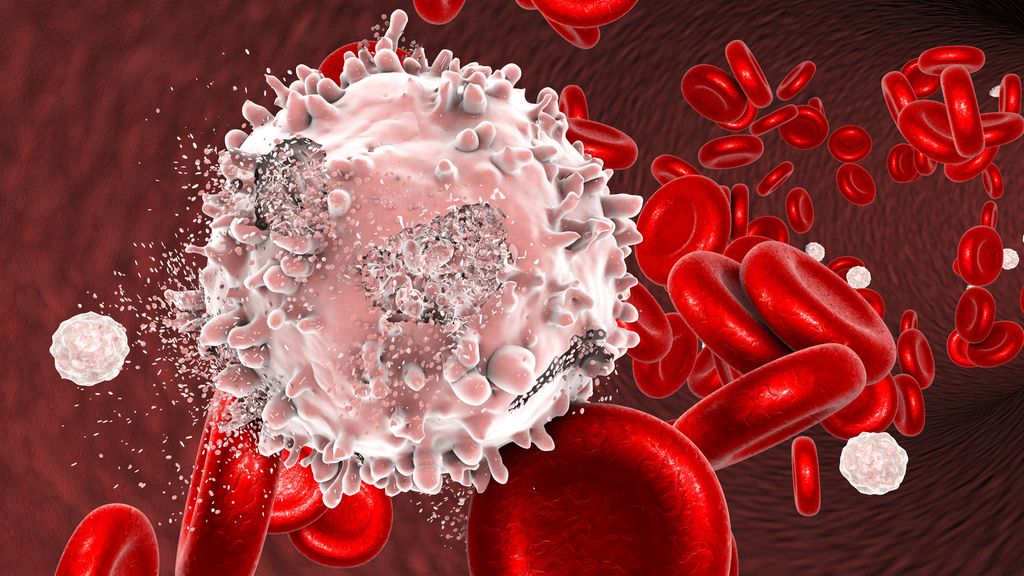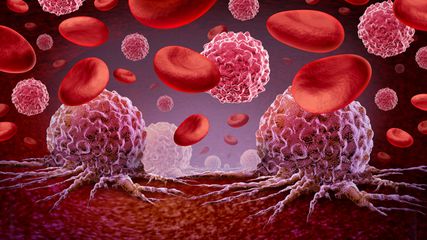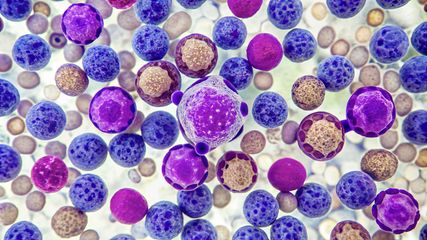
©
Getty Images/iStockphoto
Trial supports addition of Daratumumab to standard treatment regimen
Jatros Digital
30
Min. Lesezeit
28.11.2017
Weiterempfehlen
<p class="article-intro">Phase III randomized study of daratumumab plus bortezomib, melphalan, and prednisone (D-VMP) versus bortezomib, melphalan, and prednisone (VMP) in newly diagnosed multiple myeloma (NDMM) patients ineligible for Transplant (ALCYONE).</p>
<hr />
<p class="article-content"><p>The first randomized trial to evaluate the use of a monoclonal antibody drug for treating newly diagnosed multiple myeloma shows that adding the drug, daratumumab, to one of the standard treatment regimens reduced the likelihood of disease progression or death by 50 % . The regimen also induced significantly deeper response and higher rates of negative minimal residual disease (MRD). The phase-III-trial, conducted in patients who were not eligible for a stem cell transplant, suggests daratumumab is a beneficial addition to one of the current first-line therapies for these patients.<br /> „Our results support that daratumumab in combination with bortezomib, melphalan, and prednisone should become a new standard of care in transplant-ineligible multiple myeloma patients,“ said senior study author Jesus F. San-Miguel, MD, Medical Director of the Clínica Universidad de Navarra in Pamplona, Spain. „Monoclonal antibodies like daratumumab have already been approved for use in relapsed patients; here, we are showing that the benefits extend to newly diagnosed patients, as well.“<br /> The trial enrolled 706 patients. All received nine 6-week cycles of the standard treatment regimen. Half were randomly assigned to receive daratumumab along with the standard treatment and continued taking daratumumab once a month after the first nine treatment cycles. To date, patients have been tracked for a median of 16 months.<br /> In terms of the study’s primary endpoint, progression-free survival, patients receiving daratumumab showed a significantly (50 % ) lower rate of disease progression or death compared to those receiving standard treatment alone, a benefit that was consistent across all demographic and biologic subgroups. This improvement appeared to be largely driven by a significantly better responsiveness to therapy, a higher rate of complete remission, and a tripling of the proportion of patients reporting MRD negativity.<br /> Both study groups showed similar rates of adverse events with the exception of upper respiratory tract infections and pneumonia, which occurred somewhat more frequently in those taking daratumumab, but the majority of these resolved.<br /> The trial is the first of several ongoing studies to evaluate daratumumab as a front-line treatment for newly diagnosed multiple myeloma to report results.<br /><br /></p> <p><em>ASH Annual Meeting 2017, abstract #LBA-4</em></p></p>
Das könnte Sie auch interessieren:
Highlights zu Lymphomen
Assoc.Prof. Dr. Thomas Melchardt, PhD zu diesjährigen Highlights des ASCO und EHA im Bereich der Lymphome, darunter die Ergebnisse der Studien SHINE und ECHELON-1
Heilung für das multiple Myelom?
Fortschritte des Wissens zur Pathogenese des multiplen Myeloms (MM) und die davon abgeleitete Entwicklung neuer Behandlungsformen haben zu einer signifikanten Steigerung des Überlebens ...
Interessante Daten zu neuen Therapieoptionen
Am hämatologischen Jahreskongress der American Society of Hematology (ASH) wurden Updates von Studien wie TRIANGLE und POLARIX präsentiert, ohne dass sich hierbei grundlegende neue ...


